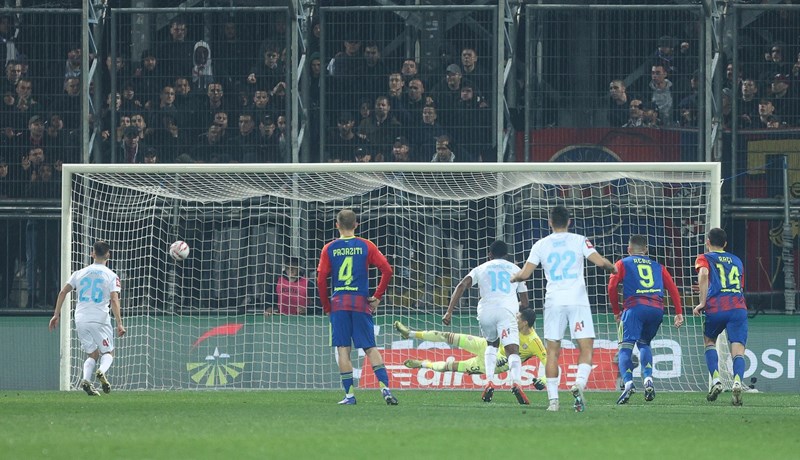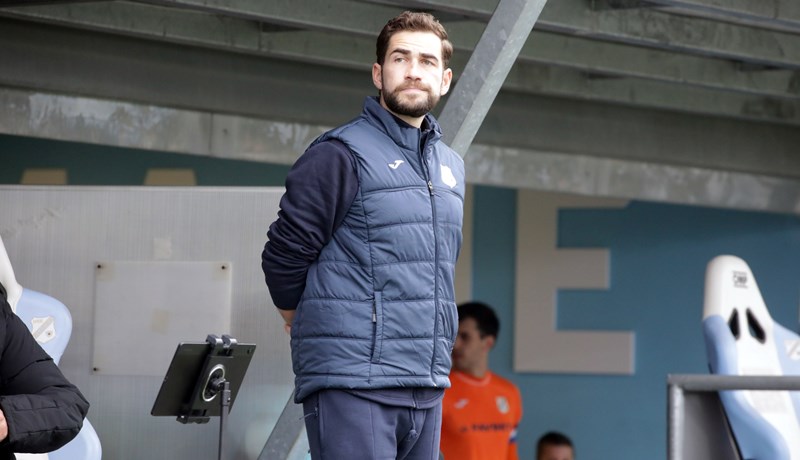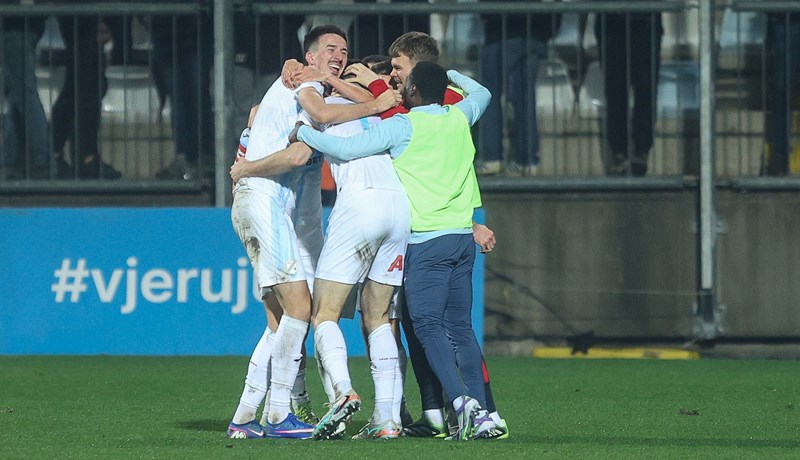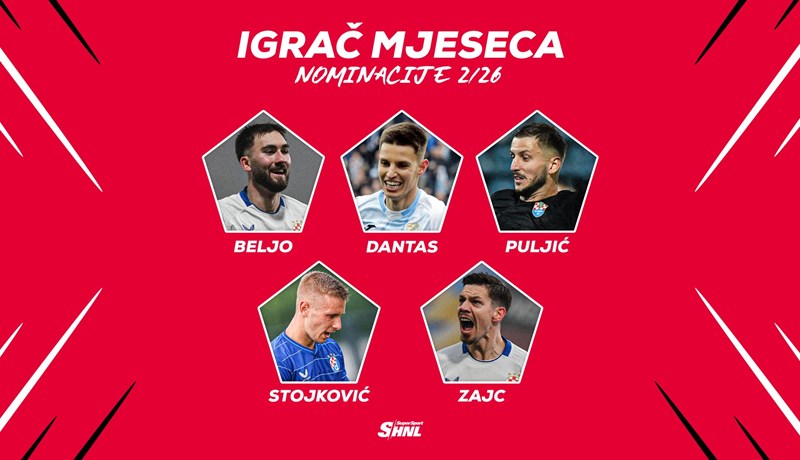BundesLiga 2013-14
GSG 9 je napisao/la:
Pirmin Schwegler ostaje u Frankfurtu.... BravoVidi cijeli citat
Tako mi je krivo što nisam pratio mnogo Frankfurta,znam da je Jung fantastican igrač,Inui mi se sviđa također,Rode.
Ali kakav je taj Schwegler ?
btw svaka cast Frankfurtu zadrzat ce sve igrače na okupu,to ni Dortmund nemoze .
AgentZero7 je napisao/la:
GSG 9 je napisao/la:
Pirmin Schwegler ostaje u Frankfurtu.... BravoVidi cijeli citat
Tako mi je krivo što nisam pratio mnogo Frankfurta,znam da je Jung fantastican igrač,Inui mi se sviđa također,Rode.
Ali kakav je taj Schwegler ?
btw svaka cast Frankfurtu zadrzat ce sve igrače na okupu,to ni Dortmund nemoze .
Vidi cijeli citat
Schwegler je kapetan Eintrachta... pravi centralni vezni sa odlicnim pasom, slobodnjakom i udarcem, malo je sporiji i trkacki nije na razini
nakon malog izbivanja ponovo je pozvan u repku svicarske
inace wolfsburg mu je nudio duple novce nego sto ima u frankfurtu (oko 2.5m eura) ali je ipak ostao u frankfurtu
augustiner je napisao/la:
Pope John Paul II je napisao/la:
Povratkom Herthe i istočni blok će imat prvoligaša ove sezone u bundesligi.Vidi cijeli citat
nece, jer je hertha zapadni berlin..mislim da nam preostaje jedino da cekamo leipzig jos barem 2 god, ako austrijski tuzlak odluci iskesirati dovoljno
Vidi cijeli citat
Da, imaš pravo, baš malo gledam i zadnji klub iz istočne Njemačke koji je nastupao u bundesligi je bio Energie Cottbus 2008/2009 a godinu dana prije i nekad uspješna Hansa koja danas nije čak ni u 2. Bundesligi,
"I ask him which way he thinks it should be done we got down to it and then we talk about it for twenty minutes and then we decide i was right" Brian Clough
Rostock je bio u financijskim problemima zato je tako i pao
većina kluba istocne njemacke tesko financijski prati ove iz zapadne,a mnogo njih cesto upadne i u probleme zato danas imamo tako malo klubova iz istocne njemacke u prve 3 lige
kad se vec dohvacamo istocne njemacke,evo malo podataka o gledanosti te lige
iznenadjuje me sto 1.fc.lokomotive leipzig i nije imao bog zna kakvu gledanost u usporedbi s drugima...i sto je povremeni prvoligas iz istog grada (chemie..koji je danas cini mi se u 6.ligi) imao vecu gledanost nego kultni lokomotive...
većina kluba istocne njemacke tesko financijski prati ove iz zapadne,a mnogo njih cesto upadne i u probleme zato danas imamo tako malo klubova iz istocne njemacke u prve 3 lige
kad se vec dohvacamo istocne njemacke,evo malo podataka o gledanosti te lige
iznenadjuje me sto 1.fc.lokomotive leipzig i nije imao bog zna kakvu gledanost u usporedbi s drugima...i sto je povremeni prvoligas iz istog grada (chemie..koji je danas cini mi se u 6.ligi) imao vecu gledanost nego kultni lokomotive...
DDR-Oberliga 1990/91
Club Average vs '90
1 FC Hansa Rostock 10.031 - 5,8% 2 1. FC Dynamo Dresden 10.013 -50,5% 3 Hallescher FC Chemie 8.098 6,1% 4 FC Rot Weiss Erfurt 6.815 23,8% 5 BSG Energie Cottbus 6.029 -45,5% 6 Chemnitzer FC 5.262 -39,0% 7 FC Sachsen Leipzig 1990 4.992 NEW 8 BSG Stahl Brandenburg 3.717 -47,8% 9 1. FC Magdeburg 3.392 -60,4% 10 FC Carl Zeiss Jena 3.188 -27,6% 11 BSG Stahl Eisenhüttenstadt 2.823 -46,7% 12 1. FC Lokomotive Leipzig 2.808 -40,7% 13 FC Viktoria Frankfurt / Oder 1.508 NEW 14 FC Berlin 1.077 -80,2%
Total 4.982 -40,0%
DDR-Oberliga 1989/90
Club Average vs '89
1 1. FC Dynamo Dresden 20.231 - 8,9% 2 BSG Energie Cottbus 11.062 -15,5% 3 FC Hansa Rostock 10.650 -47,6% 4 Wismut Aue 9.777 - 8,2% 5 FC Karl-Marx-Stadt 8.627 - 3,6% 6 1. FC Magdeburg 8.577 29,7% 7 Hallescher FC Chemie 7.635 -27,8% 8 BSG Fortschritt Bischofswerda 7.119 NEW 9 BSG Stahl Brandenburg 7.115 -23,9% 10 FC Rot Weiss Erfurt 5.504 -31,5% 11 FC Berlin 5.446 -35,0% 12 BSG Stahl Eisenhüttenstadt 5.292 NEW 13 1. FC Lokomotive Leipzig 4.738 -27,6% 14 FC Carl Zeiss Jena 4.404 - 9,4%
Total 8.298 -18,7%
DDR-Oberliga 1988/89
Club Average vs '88
1 1. FC Dynamo Dresden 22.215 15,1% 2 FC Hansa Rostock 20.308 41,2% 3 BSG Energie Cottbus 13.088 NEW 4 Wismut Aue 10.646 23,1% 5 Hallescher FC Chemie 10.568 -17,0% 6 BSG Stahl Brandenburg 9.346 - 8,3% 7 FC Karl-Marx-Stadt 8.950 7,3% 8 Berliner FC Dynamo 8.385 - 4,6% 9 FC Rot Weiss Erfurt 8.038 9,4% 10 1. FC Union Berlin 7.308 -20,5% 11 1. FC Magdeburg 6.615 -34,4% 12 1. FC Lokomotive Leipzig 6.546 -27,7% 13 BSG Sachsenring Zwickau 6.085 NEW 14 FC Carl Zeiss Jena 4.862 - 7,9%
Total 10.211 8,5%
DDR-Oberliga 1987/88
Club Average vs '87
1 1. FC Dynamo Dresden 19.308 1,6% 2 FC Hansa Rostock 14.385 NEW 3 Hallescher FC Chemie 12.738 NEW 4 BSG Stahl Brandenburg 10.192 - 2,9% 5 1. FC Magdeburg 10.077 - 8,4% 6 1. FC Union Berlin 9.192 6,7% 7 1. FC Lokomotive Leipzig 9.054 13,7% 8 Berliner FC Dynamo 8.792 - 6,7% 9 Wismut Aue 8.646 -26,2% 10 FC Karl-Marx-Stadt 8.338 - 6,9% 11 FC Rot Weiss Erfurt 7.346 -15,9% 12 FC Carl Zeiss Jena 5.277 - 0,3% 13 BSG Stahl Riesa 5.000 -10,0% 14 FC Vorwärts Frankfurt / Oder 3.408 -10,5%
Total 9.411 3,4%
DDR-Oberliga 1986/87
Club Average vs '86
1 1. FC Dynamo Dresden 19.000 - 3,9% 2 Wismut Aue 11.715 23,8% 3 1. FC Magdeburg 11.000 33,6% 4 BSG Stahl Brandenburg 10.500 - 4,2% 5 Berliner FC Dynamo 9.423 3,8% 6 FC Karl-Marx-Stadt 8.958 21,2% 7 BSG Energie Cottbus 8.931 NEW 8 FC Rot Weiss Erfurt 8.731 -21,7% 9 1. FC Union Berlin 8.615 -32,1% 10 1. FC Lokomotive Leipzig 7.962 - 3,3% 11 BSG Fortschritt Bischofswerda 7.954 NEW 12 BSG Stahl Riesa 5.554 - 6,8% 13 FC Carl Zeiss Jena 5.292 -20,9% 14 FC Vorwärts Frankfurt / Oder 3.808 - 3,9%
Total 9.103 - 2,5%
DDR-Oberliga 1985/86
Club Average vs '85
1 1. FC Dynamo Dresden 19.769 -20,2% 2 1. FC Union Berlin 12.692 NEW 3 FC Rot Weiss Erfurt 11.154 2,8% 4 BSG Stahl Brandenburg 10.962 10,5% 5 FC Hansa Rostock 10.838 - 0,3% 6 Wismut Aue 9.462 -21,7% 7 Berliner FC Dynamo 9.077 0,0% 8 1. FC Lokomotive Leipzig 8.231 -27,0% 9 1. FC Magdeburg 8.231 -11,2% 10 FC Karl-Marx-Stadt 7.388 -19,1% 11 FC Carl Zeiss Jena 6.692 -15,5% 12 BSG Sachsenring Zwickau 6.338 NEW 13 BSG Stahl Riesa 5.962 0,0% 14 FC Vorwärts Frankfurt / Oder 3.962 -14,9%
Total 9.340 - 8,6%
DDR-Oberliga 1984/85
Club Average vs '84
1 1. FC Dynamo Dresden 24.769 - 1,5% 2 Wismut Aue 12.077 - 1,3% 3 Chemie Leipzig 11.385 -16,1% 4 1. FC Lokomotive Leipzig 11.269 - 3,6% 5 FC Hansa Rostock 10.869 -18,3% 6 FC Rot Weiss Erfurt 10.846 -15,3% 7 BSG Stahl Brandenburg 9.923 NEW 8 1. FC Magdeburg 9.269 -27,4% 9 FC Karl-Marx-Stadt 9.138 -21,4% 10 Berliner FC Dynamo 9.077 -22,6% 11 FC Carl Zeiss Jena 7.923 0,5% 12 BSG Stahl Riesa 5.962 -18,0% 13 BSG Motor Suhl 5.923 NEW 14 FC Vorwärts Frankfurt / Oder 4.654 -31,6%
Total 10.220 -14,5%
DDR-Oberliga 1983/84
Club Average vs '83
1 1. FC Dynamo Dresden 25.154 11,6% 2 Chemie Leipzig 13.577 NEW 3 FC Hansa Rostock 13.308 -19,9% 4 FC Rot Weiss Erfurt 12.808 -17,0% 5 1. FC Magdeburg 12.769 -12,6% 6 Wismut Aue 12.231 4,6% 7 Berliner FC Dynamo 11.731 - 6,2% 8 1. FC Lokomotive Leipzig 11.692 11,4% 9 FC Karl-Marx-Stadt 11.623 0,4% 10 Hallescher FC Chemie 10.538 - 4,9% 11 1. FC Union Berlin 9.885 -17,4% 12 FC Carl Zeiss Jena 7.885 - 3,8% 13 BSG Stahl Riesa 7.269 NEW 14 FC Vorwärts Frankfurt / Oder 6.808 -24,4%
Total 11.948 1,0%
DDR-Oberliga 1982/83
Club Average vs '82
1 1. FC Dynamo Dresden 22.538 0,3% 2 FC Hansa Rostock 16.615 - 3,1% 3 FC Rot Weiss Erfurt 15.423 6,1% 4 1. FC Magdeburg 14.615 11,8% 5 Berliner FC Dynamo 12.500 3,5% 6 1. FC Union Berlin 11.962 NEW 7 Wismut Aue 11.692 - 6,7% 8 FC Karl-Marx-Stadt 11.577 14,7% 9 Hallescher FC Chemie 11.077 1,8% 10 1. FC Lokomotive Leipzig 10.500 8,5% 11 FC Vorwärts Frankfurt / Oder 9.000 25,8% 12 FC Carl Zeiss Jena 8.192 -21,1% 13 Chemie Böhlen 5.515 NEW 14 BSG Sachsenring Zwickau 4.385 -39,6%
Total 11.828 3,9%
DDR-Oberliga 1981/82
Club Average vs '81
1 1. FC Dynamo Dresden 22.462 -12,8% 2 FC Hansa Rostock 17.154 -23,4% 3 FC Rot Weiss Erfurt 14.538 12,2% 4 1. FC Magdeburg 13.077 - 4,2% 5 Wismut Aue 12.538 21,6% 6 Berliner FC Dynamo 12.077 -22,5% 7 Hallescher FC Chemie 10.885 -24,7% 8 FC Carl Zeiss Jena 10.385 0,0% 9 FC Karl-Marx-Stadt 10.092 11,6% 10 1. FC Lokomotive Leipzig 9.677 -11,4% 11 BSG Energie Cottbus 7.423 NEW 12 BSG Sachsenring Zwickau 7.254 -17,6% 13 FC Vorwärts Frankfurt / Oder 7.154 14,8% 14 BSG Chemie Buna Schkopau 4.654 NEW
Total 11.384 - 8,4%
DDR-Oberliga 1980/81
Club Average vs '80
1 1. FC Dynamo Dresden 25.769 4,7% 2 FC Hansa Rostock 22.385 NEW 3 Berliner FC Dynamo 15.577 4,4% 4 Hallescher FC Chemie 14.462 -20,7% 5 1. FC Magdeburg 13.654 6,6% 6 FC Rot Weiss Erfurt 12.962 10,1% 7 1. FC Lokomotive Leipzig 10.923 3,6% 8 FC Carl Zeiss Jena 10.385 19,5% 9 Wismut Aue 10.308 8,5% 10 FC Karl-Marx-Stadt 9.046 - 0,8% 11 BSG Sachsenring Zwickau 8.808 10,6% 12 BSG Stahl Riesa 7.423 7,7% 13 FC Vorwärts Frankfurt / Oder 6.231 13,3% 14 Chemie Böhlen 5.962 NEW
Total 12.421 1,3%
DDR-Oberliga 1979/80
Club Average vs '79
1 1. FC Dynamo Dresden 24.615 1,9% 2 Hallescher FC Chemie 18.231 31,7% 3 1. FC Union Berlin 16.308 26,9% 4 Berliner FC Dynamo 14.923 0,0% 5 Chemie Leipzig 14.769 NEW 6 1. FC Magdeburg 12.808 0,9% 7 FC Rot Weiss Erfurt 11.769 9,3% 8 1. FC Lokomotive Leipzig 10.538 5,4% 9 Wismut Aue 9.500 37,2% 10 FC Karl-Marx-Stadt 9.123 6,4% 11 FC Carl Zeiss Jena 8.692 - 1,7% 12 BSG Sachsenring Zwickau 7.962 19,7% 13 BSG Stahl Riesa 6.892 -14,7% 14 FC Vorwärts Frankfurt / Oder 5.500 NEW
Total 12.259 9,1%
DDR-Oberliga 1978/79
Club Average vs '78
1 1. FC Dynamo Dresden 24.154 -20,1% 2 Berliner FC Dynamo 14.923 13,5% 3 FC Hansa Rostock 14.077 NEW 4 Hallescher FC Chemie 13.846 -18,7% 5 1. FC Union Berlin 12.846 -25,8% 6 1. FC Magdeburg 12.692 -10,1% 7 FC Rot Weiss Erfurt 10.769 42,1% 8 1. FC Lokomotive Leipzig 10.000 -19,8% 9 FC Carl Zeiss Jena 8.846 3,6% 10 FC Karl-Marx-Stadt 8.577 -25,0% 11 BSG Stahl Riesa 8.077 NEW 12 Wismut Aue 6.923 -15,9% 13 BSG Sachsenring Zwickau 6.654 - 9,4% 14 Chemie Böhlen 4.923 - 9,7%
Total 11.236 - 4,1%
DDR-Oberliga 1977/78
Club Average vs '77
1 1. FC Dynamo Dresden 30.231 2,9% 2 1. FC Union Berlin 17.308 - 2,2% 3 Hallescher FC Chemie 17.038 25,1% 4 1. FC Magdeburg 14.115 -12,6% 5 Berliner FC Dynamo 13.154 -14,3% 6 1. FC Lokomotive Leipzig 12.462 0,9% 7 FC Karl-Marx-Stadt 11.438 -10,7% 8 FC Carl Zeiss Jena 8.538 -17,8% 9 Wismut Aue 8.231 -15,4% 10 FC Rot Weiss Erfurt 7.577 -41,4% 11 BSG Sachsenring Zwickau 7.346 -18,7% 12 BSG Wismut Gera 6.785 NEW 13 Chemie Böhlen 5.454 NEW 14 FC Vorwärts Frankfurt / Oder 4.385 -22,2%
Total 11.719 -15,1%
DDR-Oberliga 1976/77
Club Average vs '76
1 1. FC Dynamo Dresden 29.385 3,8% 2 FC Hansa Rostock 20.538 NEW 3 1. FC Union Berlin 17.692 NEW 4 1. FC Magdeburg 16.154 -15,5% 5 Berliner FC Dynamo 15.346 - 7,2% 6 Hallescher FC Chemie 13.615 - 7,8% 7 FC Rot Weiss Erfurt 12.923 8,0% 8 FC Karl-Marx-Stadt 12.808 17,7% 9 1. FC Lokomotive Leipzig 12.346 -31,4% 10 FC Carl Zeiss Jena 10.385 17,9% 11 Wismut Aue 9.731 12,4% 12 BSG Sachsenring Zwickau 9.038 0,0% 13 BSG Stahl Riesa 7.631 7,8% 14 FC Vorwärts Frankfurt / Oder 5.638 17,8%
Total 13.802 9,3%
DDR-Oberliga 1975/76
Club Average vs '75
1 1. FC Dynamo Dresden 28.308 9,2% 2 1. FC Magdeburg 19.115 -16,6% 3 1. FC Lokomotive Leipzig 18.000 57,6% 4 Berliner FC Dynamo 16.538 55,2% 5 Hallescher FC Chemie 14.769 7,6% 6 FC Rot Weiss Erfurt 11.962 - 1,0% 7 Chemie Leipzig 11.423 NEW 8 FC Karl-Marx-Stadt 10.885 -19,1% 9 BSG Sachsenring Zwickau 9.038 29,8% 10 FC Carl Zeiss Jena 8.808 -19,9% 11 Wismut Aue 8.654 6,1% 12 BSG Energie Cottbus 7.500 NEW 13 BSG Stahl Riesa 7.077 -14,4% 14 FC Vorwärts Frankfurt / Oder 4.785 - 6,2%
Total 12.633 4,0%
DDR-Oberliga 1974/75
Club Average vs '74
1 1. FC Dynamo Dresden 25.923 - 4,8% 2 1. FC Magdeburg 22.923 41,9% 3 Hallescher FC Chemie 13.731 NEW 4 FC Karl-Marx-Stadt 13.462 - 2,8% 5 FC Hansa Rostock 13.462 - 1,7% 6 FC Rot Weiss Erfurt 12.077 7,5% 7 1. FC Lokomotive Leipzig 11.423 -20,4% 8 FC Carl Zeiss Jena 11.000 14,4% 9 Berliner FC Dynamo 10.654 47,3% 10 BSG Stahl Riesa 8.269 0,9% 11 Wismut Aue 8.154 16,5% 12 BSG Sachsenring Zwickau 6.962 -26,4% 13 ASG Vorwärts Stralsund 6.846 NEW 14 FC Vorwärts Frankfurt / Oder 5.100 -29,5%
Total 12.142 2,2%
DDR-Oberliga 1973/74
Club Average vs '73
1 1. FC Dynamo Dresden 27.231 12,4% 2 1. FC Magdeburg 16.154 32,1% 3 1. FC Lokomotive Leipzig 14.346 19,6% 4 FC Karl-Marx-Stadt 13.846 - 7,2% 5 FC Hansa Rostock 13.692 62,6% 6 Chemie Leipzig 12.462 -21,0% 7 FC Rot Weiss Erfurt 11.231 27,0% 8 FC Carl Zeiss Jena 9.615 29,5% 9 BSG Sachsenring Zwickau 9.462 39,8% 10 BSG Energie Cottbus 8.692 NEW 11 BSG Stahl Riesa 8.192 NEW 12 Berliner FC Dynamo 7.231 - 6,0% FC Vorwärts Frankfurt / Oder 7.231 20,5% 14 Wismut Aue 7.000 3,4%
Total 11.885 9,0%
DDR-Oberliga 1972/73
Club Average vs '72
1 1. FC Dynamo Dresden 24.231 5,2% 2 Chemie Leipzig 15.769 NEW 3 FC Karl-Marx-Stadt 14.923 6,6% 4 Hallescher FC Chemie 12.385 - 9,0% 5 1. FC Magdeburg 12.231 -45,0% 6 1. FC Lokomotive Leipzig 12.000 2,6% 7 1. FC Union Berlin 9.154 2,1% 8 FC Rot Weiss Erfurt 8.846 NEW 9 FC Hansa Rostock 8.423 -17,4% 10 Berliner FC Dynamo 7.692 - 1,0% 11 FC Carl Zeiss Jena 7.423 6,6% 12 Wismut Aue 6.769 -25,7% BSG Sachsenring Zwickau 6.769 -15,1% 14 FC Vorwärts Frankfurt / Oder 6.000 -12,8%
Total 10.901 - 4,3%
DDR-Oberliga 1971/72
Club Average vs '71
1 1. FC Dynamo Dresden 23.038 1,2% 2 1. FC Magdeburg 22.231 126,7% 3 FC Karl-Marx-Stadt 14.000 NEW 4 Hallescher FC Chemie 13.615 -22,7% 5 1. FC Lokomotive Leipzig 11.692 5,6% 6 FC Hansa Rostock 10.192 -26,8% 7 Wismut Aue 9.115 - 1,3% 8 BSG Stahl Riesa 9.000 0,4% 9 1. FC Union Berlin 8.962 -22,8% 10 BSG Sachsenring Zwickau 7.977 -20,5% 11 ASG Vorwärts Stralsund 7.962 NEW 12 Berliner FC Dynamo 7.769 40,3% 13 FC Carl Zeiss Jena 6.962 -32,5% 14 FC Vorwärts Frankfurt / Oder* 6.885 0,6%
Total 11.386 - 3,1%
* Vorwärts moved from Berlin to Frankfurt / Oder
DDR-Oberliga 1970/71
Club Average vs '70
1 1. FC Dynamo Dresden 22.769 23,1% 2 Hallescher FC Chemie 17.615 13,1% 3 Chemie Leipzig 15.538 -11,4% 4 FC Hansa Rostock 13.923 23,5% 5 1. FC Union Berlin 11.615 NEW 6 FC Rot Weiss Erfurt 11.308 19,0% 7 1. FC Lokomotive Leipzig 11.077 NEW 8 FC Carl Zeiss Jena 10.308 11,7% 9 BSG Sachsenring Zwickau 10.038 12,0% 10 1. FC Magdeburg 9.808 -13,0% 11 Wismut Aue 9.231 - 2,4% 12 BSG Stahl Riesa 8.962 -10,0% 13 FC Vorwärts Berlin 6.846 20,3% 14 Berliner FC Dynamo 5.538 18,0%
Total 11.755 10,0%
DDR-Oberliga 1969/70
Club Average vs '69
1 1. FC Dynamo Dresden 18.500 8,8% 2 Chemie Leipzig 17.538 NEW 3 Hallescher FC Chemie 15.577 - 8,4% 4 1. FC Magdeburg 11.269 -20,8% FC Hansa Rostock 11.269 -15,1% 6 FC Karl-Marx-Stadt 10.577 -33,9% 7 BSG Stahl Riesa 9.962 7,5% 8 FC Rot Weiss Erfurt 9.500 - 7,8% 9 Wismut Aue 9.462 -24,1% 10 FC Carl Zeiss Jena 9.231 -10,4% 11 BSG Sachsenring Zwickau 8.962 - 5,3% 12 BSG Stahl Eisenhüttenstadt 7.346 NEW 13 FC Vorwärts Berlin 5.692 -21,7% 14 Berliner FC Dynamo 4.692 - 9,0%
Total 10.684 - 8,0%
DDR-Oberliga 1968/69
Club Average vs '68
1 1. FC Dynamo Dresden 17.000 -13,3% Hallescher FC Chemie 17.000 11,6% 3 FC Karl-Marx-Stadt 16.000 2,0% 4 1. FC Magdeburg 14.231 1,9% 5 FC Hansa Rostock 13.269 -16,1% 6 Wismut Aue 12.462 37,3% 7 1. FC Lokomotive Leipzig 11.308 5,0% 8 FC Rot Weiss Erfurt 10.308 -27,8% FC Carl Zeiss Jena 10.308 3,9% 10 1. FC Union Berlin 9.615 3,3% 11 BSG Sachsenring Zwickau 9.462 - 5,4% 12 BSG Stahl Riesa 9.269 NEW 13 FC Vorwärts Berlin 7.269 0,4% 14 Berliner FC Dynamo 5.154 NEW
Total 11.618 - 4,2%
DDR-Oberliga 1967/68
Club Average vs '67
1 1. FC Dynamo Dresden 19.615 - 4,5% 2 FC Hansa Rostock 15.808 65,7% 3 FC Karl-Marx-Stadt 15.692 -30,4% 4 Hallescher FC Chemie 15.231 32,9% 5 FC Rot Weiss Erfurt 14.269 NEW 6 1. FC Magdeburg 13.962 NEW 7 Chemie Leipzig 12.885 11,7% 8 1. FC Lokomotive Leipzig 10.769 19,7% 9 BSG Sachsenring Zwickau 10.000 7,4% 10 FC Carl Zeiss Jena 9.923 55,4% 11 1. FC Union Berlin 9.308 15,8% 12 Wismut Aue 9.077 9,3% 13 FC Vorwärts Berlin 7.238 - 1,5% 14 Lokomotive Stendal 6.038 7,2%
Total 12.130 19,8%
DDR-Oberliga 1966/67
Club Average vs '66
1 FC Karl-Marx-Stadt 22.538 51,8% 2 1. FC Dynamo Dresden 20.538 -19,8% 3 Chemie Leipzig 11.538 -13,3% 4 Hallescher FC Chemie 11.462 - 4,5% 5 FC Hansa Rostock 9.538 10,7% 6 BSG Motor Zwickau 9.308 - 5,5% 7 1. FC Lokomotive Leipzig 9.000 7,3% 8 Wismut Aue 8.308 5,9% 9 1. FC Union Berlin 8.038 NEW 10 BSG Wismut Gera 7.577 NEW 11 FC Vorwärts Berlin 7.346 15,1% 12 FC Carl Zeiss Jena 6.385 -31,4% 13 Lokomotive Stendal 5.631 16,2% 14 Berliner FC Dynamo 4.538 -23,4%
Total 10.125 - 1,7%
DDR-Oberliga 1965/66
Club Average
1 1. FC Dynamo Dresden 25.615 2 FC Karl-Marx-Stadt 14.846 3 Chemie Leipzig 13.308 4 Hallescher FC Chemie 12.000 5 BSG Motor Zwickau 9.846 6 FC Rot Weiss Erfurt 9.462 7 FC Carl Zeiss Jena 9.308 8 FC Hansa Rostock 8.615 9 1. FC Lokomotive Leipzig 8.385 10 Wismut Aue 7.846 11 1. FC Magdeburg 7.769 12 FC Vorwärts Berlin 6.385 13 Berliner FC Dynamo 5.923 14 Lokomotive Stendal 4.846
Total 10.297
Prvi kazneni udarac koji je vratio Riječane iz minusa u ranoj fazi drugog poluvremena
Munoz: 'Cijela momčad i trener su heroji, imaju i dušu i srce'
Gabriel Rukavina u 110. minuti zabio svoj pogodak karijere i odveo Rijeku u polufinale SuperSport HNK-a
SuperSport HNL nominacije: Dinamovci dominiraju za mjesečne nagrade
inace iz ovih podataka gore..FC Karl-Marx-Stadt je danasnji Chemnitzer FC (jer se grad Chemnitz dok su bili pod komunstickom vlascu zvao Karl-Marx-Stadt...a Wismut Aue je danasnji Erzgebirge Aue..
a zanimljivo da je zadnja DDR sezona prije nogometnog ujedninjenja sa zapadom imala pad gledanosti od nevjerojatnih -40%! Dresden,Cottbus,Magdeburg su tu prednjačili,posjeta im se doslovno prepolovila....
a zanimljivo da je zadnja DDR sezona prije nogometnog ujedninjenja sa zapadom imala pad gledanosti od nevjerojatnih -40%! Dresden,Cottbus,Magdeburg su tu prednjačili,posjeta im se doslovno prepolovila....
[uredio allen - 12. lipnja 2013. u 18:35]
kad se ian wright vec dotaknio Union Berlina..prije koju godinu sam procitao jedna zanimljiv text o rivalstvu sa BFC Dynamo...pa eto ako nekog zanima
___________________________________________________________________________________________________
netko je spominjao Berlinski nogomet..pa evo i o tome nesto...
Wuppertaler SV....ovo mi je bilo jako zanimljivo..pogotovo na kraju....
Note: This is basically historical fiction. The events are true, but my memory has faded, so I have liberally embellished to help out...
Yes, we did score all those goals. All those events did happen. Of course, the opposition team also scored goals, and lots of them. In fact, we basically got our ass kicked in every game. The only thing that was in fact fully documented was that we did in fact beat Bayern München 3-1 on that memorable day in the Zoo-Stadion. The only problem was that the three-time defending champion SUCKED that year, and had their worst finish ever, 10th in the league. The only other match we won was against the always crap Tennis Borussia. Yeah, we did bang in two on the road at eventual champs Gladbach. Of course, I neglected to mention that they ripped in six. Those "streaks" I talked about? Losing streaks. OK, Franz Gerber was a decent addition, and he did score 12 that year. And Günter Pröpper really did score 39 goals - in WSV's 3 campaigns in the Bundesliga. A nice amount, but not extraordinary. And Horst Buhtz started the season, and was fired. He was hardly geriatric, as he went on to coach other Bundesliga teams with some success. And those Hungarians? They sucked. We're not talking Puskas and Czibor here. That coach Bedl? Yeah, he got his ass fired too, and since WSV was so crap, they didn't even bother replacing him, and let Manni Reichert be player coach. As the season progressed, the fans basically gave up. WSV averaged under 10,000 for the season, after being well over 20,000 the first year. In the last WSV Bundesliga match (that game against Kaiserslautern, 3-3 after being down 1-3), only 4,000 showed up. Truly a season of crappy-ian proportions.
Derby Day in (East) Berlin…
by Paul Scraton
(Editorial Note: Guest writer Paul Scraton is a Liverpool fan resident in Berlin. Many thanks for this essay!)
It is Sunday the 21st August 2005. All eyes in England are on the early season 'title-decider' between Chelsea and Arsenal at Stamford Bridge. In Germany the Bundesliga sides have entered the cup, and village teams dream of giant killing. But in Berlin there is only one game that matters: an Oberliga North-East North derby between 1.FC Union and BFC Dynamo.
The sky is blue and a relentless sun is beating down on the city. It is great early season football weather, but the police and the football authorities are nervous. It is less than a year until Germany hosts the World Cup, and already preparations have been marred by refereeing scandals and crowd trouble at a recent Germany - Slovenia friendly match. The powers that be are dreading any more negative press, but today they have every right to expect it. To put it simply, Union and Dynamo don't like each other very much.
Today's game may be taking place in the lowly confines of the fourth tier of the German football pyramid, but in East German times Union were arguably (East) Berlin's most popular club, although as any Newcastle supporter will tell you, fanbase does not always mean trophies. Union's solitary honour was winning the East German Cup in 1968, seven years after the Berlin Wall was built. BFC Dynamo on the other hand were the exact opposite, with success in the East German Oberliga coming thick and fast, including ten straight championships between 1979 and 1988.
Problem was, the majority of football fans in East Germany found little to admire about Dynamo. Like many teams sharing that name throughout Eastern Europe, Dynamo was the team of the secret police, which in East Germany meant the Stasi. The head of the Stasi was a nice chap by the name of Erich Mielke, and when he wasn't co-ordinating one of the most thorough spying operations by any nation against its own population he was enjoying the football. Mielke liked to win, and there wasn't a player in East Germany that Dynamo couldn't 'afford' or a referee that couldn't be bribed. Need a penalty in the last minute, Erich? No problem. Now, how about that travel visa? Of course, bribes were not always necessary. Even Mielke's staunchest critics could appreciate that Dynamo had the best players. It was just, when the best wasn't good enough, there was a helping hand behind the scenes, pulling the strings.
It would have been hard for Dynamo to lose in those circumstances, and the corruption was so blatant (and in any case the Stasi connection would have been enough without it) that most football fans were less than enamoured by the team they nicknamed 'the Eleven Shits'. There wasn't much they could do about it of course, but they haven't forgotten, sixteen years after the wall came down. Union fans, who can also add city rivalry in amongst the list of grievances shared by East German football fans in general, absolutely hate Dynamo.
Dynamo lost their 'sponsor' when East Germany collapsed and took the Stasi with it, but Mielke's favourite club gained something else during the 1990s: a bunch of supporters that make old school British hooligans look tame. 'No-one likes us, we don't care' could have been written for the drunk, shaven-headed, neo-nazi (allegedly) thugs that are waiting with us for a train at Alexanderplatz station. A section of society that is vilified by the rest of Germany couldn't have chosen a better club to identify with. They revel in the animosity, baiting opposition fans and the police alike.
They are out in force today, no doubt because it is nearly five years since they've had a confrontation with the old rivals Union. That was for a cup match and there was fighting both inside and outside of the stadium. Add the decades of injustice in the minds of the Union fans to these unsavoury characters, thirty-five degrees sunshine and litres of beer and there was a potentially explosive few hours ahead of us. No wonder the police were nervous.
As were we, standing on the platform, afraid to catch the eye of one of the tanked up meatheads in BFC shirts. Maybe this wasn't such a great idea after all. One of our party is late, so we let the first train go by. Our friends from Dynamo all get on and an entire station gives out a collective exhale of breath. Thankfully no more materialise by the time the next train arrives and we manage to make the twenty five minute journey in peace, as we pass through various Berlin neighbourhoods to Köpernick, home of Union, in the south-east of the city.
At Köpernick station the police are out in olive-green force, and doing their best to separate the two sets of fans at the bottom of the stairs in order to send them along different routes to the stadium. Union fans and the rest of the general public are sent to the right. Dynamo fans and anyone with a skinhead are sent to the left, which at least shows that the Berlin police have got a sense of humour.
We walk along a tree-lined avenue into the park where Union have their stadium, much more at ease despite the heavy police presence, which includes armoured vehicles and water-cannons. The atmosphere is relaxed, pleasant.
Closer to the stadium and there is a definite buzz in the air. This game is an event, more than just three points and a good start to the season. It is like a cup final and promotion playoff rolled into one, mixed in with history and politics and all the attendant baggage…for the Union fans around us it is clear that this is the most important game of the season.
These are tough times for 1.FC Union. Three seasons ago they were in the Bundesliga 2, jostling for a place at the top table of German football. But two successive relegations have them playing in a league with teams that attract home gates of a couple of hundred, the majority of which are clubs in and around Berlin that most people in Germany's capital don't even know exist.
Indeed, these are tough times for teams from the former East Germany in general. The last remaining representative in the Bundesliga 1, Hansa Rostock, were relegated last May. The top flight has kicked off without a representative of the former East German states for the first time since reunification. The German Football Federation called a crisis meeting but there is not much that can be done. Tough times indeed.
Today however, the level of football is unimportant. 14,000 fans have packed into Union's picturesque 'Alten Försterei' stadium, an increase of 8,000 from their previous home game a fortnight ago. That was another Berlin derby, and there will be a lot of them this season, against a team by the name of Berliner AK 07, but that was nothing compared to this. A couple of characters seem as distinctly shady as the guys we had encountered earlier at the train station, similar hairstyle and tattoos, but in the main this is a mixed crowd, undoubtedly for Union, with a fair sprinkling of day-trippers such as ourselves who have come to check out what all the fuss is about.
Inside the stadium we come face to face with the mass ranks of Dynamo again, around two thousand behind one goal, fenced in from the front, back and sides, surrounded by coppers. It is big game for the Dynamo fans as well, a public act of defiance from the despised. They stand against the railings and send macho gestures out towards their opponents, across the expanse of terracing that Union have sensibly left free. The Union fans, the hard lads at least, reciprocate. Newspaper reports tell of ticket applications for the Dynamo end from other eastern cities, such as Chemnitz, Dresden and Leipzig. Even the Dynamo fanclub is bemused. 'Why do they want to come,' a spokesman is quoted as saying, 'and where are these guys normally?' The thousand-strong police force at the game is probably asking the same question.
Kick-off is scheduled for 2pm, the sun is high in the sky, and there is no roof or other means of shade. It is roasting, and to add to the tension the kick-off has been delayed. Everyone is not in the stadium yet. The terraces fill up but the delay continues, well beyond the ten minutes that were initially announced. We can see the Union players at the mouth of the tunnel and a cheer goes up, but they disappear again. The Dynamo fans have unfurled a huge banner that says 'Berliner Fussball Club Dynamo - Censored' and have all sat down on the terraces. It is uncomfortably hot now, and there is nothing to distract people from the heat. In an attempt to entertain us, and possibly alleviate the tension that has been building all day, the DJ elects to play a steady stream of eighties metal, Nirvana, and Rammstein. Good choice.
A rumour goes around that the delay is being caused by a protest from Dynamo. Apparently the police raided a fanclub event the night before and arrested over a hundred people. The club are upset as the fans are still locked up and won't be released until after the game. The delay continues. Tomorrow we will discover that although the raid story is true, and 180 'known troublemakers' were kept behind bars for the duration of the match, the reason for the delay was much more comedic. Dynamo forgot the shorts for their away strip, and the referee wouldn't let them play in their home ones. The kitman had to drive across Berlin to get them, and got caught in the Saturday traffic.
Eventually the players, all in correct, non-clashing shorts, appear on the field and the game can begin. From the off it is a tetchy, scrappy affair. The first thing you notice at this level is how much slower the pace of the game is, although it could also have a lot to do with the heat. Not much happens for the first quarter of an hour. The players engage in misplaced passes and hopeful punts. The fans trade insults. Then, with 16 minutes on the clock, Union remember that sometimes playing the ball to feet can pay great dividends. Their first fluid move of the match cuts through Dynamo's defence with a series of quick, accurate passes, that leaves goalscorer Mattushka six yards out with an easy finish into the bottom corner. Twelve thousand fans go wild. Two thousand sit down on the terraces again.
Union dominate the rest of the half, and the few breaks that Dynamo can manage do not even threaten the goal. On 34 minutes Union add a second, that is almost identical in its approach as the first, and whenever they get the ball on the ground they cause havoc in the Dynamo defence. Just before halftime though and Union haven't managed to add to their two goals. Dynamo have a freekick on the edge of the area after the lineman adjudged that Union's goalkeeper handled it just outside. It is a good chance, but a goal would be wholly undeserved. Luckily for footballing justice the ball flies over the bar into the grateful arms of the Union spectators, and the referee blows for halftime.
No doubt plans are afoot in the Dynamo dressing room, probably about containment, patience, and how to get back into the game. They came out with purpose, and for two minutes they manage more completed passes than the whole of the first half put together. Sadly they are caught on the break, and with 47 minutes on the clock they have gone three behind. Dynamo heads go down, and what follows is a collapse so complete and total it reminds you of the East German regime following the fall of the Berlin Wall.
Goal after goal thunders into the back of the Dynamo net, and with each strike the levels of delirium amongst the Union fans increases. The songs and chants get louder and louder, mostly directed at the Dynamo fans rather than for their own team. Of course there are regular outings for the club standard, 'Eisern Union' ('Stay Strong Union'), but the two most popular, for today at least, are 'Scheiß Dynamo' (which the Union fans have also printed onto thousands of cards which they wave at regular intervals) and the amusing 'Without Mielke, You've Got No Chance'.
For a while the Dynamo fans try and counter but as the goals pile up they quickly grow disillusioned. Four, five, six - a sweet strike from ex-Germany international Jörg Heinrich - seven, eight…the Union fans are in absolute heaven as their heroes on the field rack up an 8-0 scoreline against the old enemies. Without Mielke, it seems, they really do have no chance.
Unlike in most routs, where the players and fans often get bored of the ease of victory and hardly celebrate the seventh or eighth goals, here at Union each goal is cheered even louder than the last. They came to the stadium today hoping for a victory against the hated Dynamo, and not only were they getting it, the archrivals are being humiliated.
The passion is impressive, if slightly un-nerving. One man, a middle-aged, academic-looking chap has spent most of the game chatting amiably to his equally respectable looking friends. But with each goal he climbs the crush-barriers and for a moment or so launches an impressive volley of invective across at the Dynamo fans. This has nothing to do with the players on the pitch, but everything to do with history, with long-held feelings about Dynamo and everything they have stood for. After he has exhausted his supply of swearwords and turned slightly purple he climbs down to resume his chatting with his pals, until the next goal, and the next unloading of distaste and disgust that the intended recipients can't even hear.
We are enjoying the game, cheering every goal along with the locals, enjoying the entertainment, but with the full time whistle comes a sense of trepidation. The Dynamo fans understandably don't look best pleased. The train ride home could be interesting. Thankfully, as we wouldn't want to run into these guys when they were happy let alone after an eight-nil drubbing, they are kept in the stadium, and by the time they finally let them out we have long gone. The Union fans, on the streets and on the train are understandably happy. They are singing, '8-0, 8-0,' as if they can't quite believe it. They have started the season well, two wins and a draw. Maybe their stay in the fourth league will be a short one.
For Dynamo on the other hand this is a third straight loss to start the season. The Chairman gives the embattled manager a vote of confidence, which if wasn't ominous enough, is followed up with a 'we'll see how the next few results go'. For the German football authorities there is relief as the evening passes without further incident. It also turns out that it is the police that need to do the apologising for the events of the night before. Heavily criticised for their actions in the nightclub when they rounded up Dynamo fans, an apology was not enough, and as more details emerged from what had happened it became clear that had Dynamo protested, it would have been well justified.
The 'hatred of generations', as one Berlin newspaper describes the match the next morning will no doubt continue, in the return match at Dynamo and beyond. But for Union fans the 21st August 2005 offers a new story to add to the memories of stolen championships and bribed officials, a chapter in their shared history where Union came out on top, even if it was an Oberliga North-East North match that most of Germany didn't even know was happening…
'Do you remember the day we beat Dynamo - spit - by eight to nil?'
Date: 21.08.2005 (Sunday)
Time: 14:00
Attendance: 14,020
Stadium: An der Alten Försterei
1. FC Union Berlin:
Glinker - Ruprecht, Heinrich, Kurbjuweit (46. Wunderlich), Kaiser, Bönig,
Mattuschka (85. Kovulmaz), Grubert (71. Prokoph), Benyamina, Bergner, Persich
BFC Dynamo:
Brändike - Lenz, Rudwaleit, Dehnert, Zöphel, Schmele (66. Brychzy), Benthien, Jarling,
Manteufel (66. Marjanovic), Lau, Jakowitz (77. Kayser)
Referee: Helmut Bley (Sehmatal)
Linesmen: Lutz Rosenkranz, Jens Oehme
Yellow cards: Glinker, Mattuschka, Grubert - Jarling, Manteufel, Lau
Scoring: 1:0 Mattuschka (16.), 2:0 Mattuschka (33.), 3:0 Grubert (47.), 4:0 Grubert (68.), 5:0 Benyamina
(77.), 6:0 Heinrich (80.), 7:0 Benyamina (82.), 8:0 Benyamina (89.)
___________________________________________________________________________________________________
netko je spominjao Berlinski nogomet..pa evo i o tome nesto...
Berlin Diary
By Kenny Legg
Note: OK, it's not exactly William Shirer's classic. Kenny Legg is an Englishman and Weymouth fan who decided to take a trip to Berlin to check out some iof the action. Here are his impressions of lower league Berlin football...Many thanks!
My geeky trip began with an excursion to the far south western reaches of the S-Bahn map into the suburbs of Berlin to watch the Oberliga Nord game between Tennis Borrusia (TeBe) Berlin and SV Babelsberg 03. TeBe were a team I had seen during the golden days of 2.Liga on DSF satellite television but who had since fallen on hard times financially. SV Babelsberg were new to me, but a look at Kicker showed them to be in line for promotion to the Regionalliga. I followed a group of Babelsberg fans, wearing the obligatory denim jacket and multiple scarf combo that any self respecting German football fan wears, via a well trodden pathway through a wooded area towards the distant floodlights of the Mommsenstadion.
I am one of the first to arrive at the stadium, which is a large athletics stadium with one covered stand and more police officers on patrol than people at this stage, I pay my 6 Euros entrance fee and I make my way straight to the clubhouse. Refreshingly the bar was populated by the usual assortment of oddballs that populate football club bars in the hours before kick, a mixture of eccentric old people and younger people who are just killing time before they turn into eccentric elderly people. My favorites are the old couple who are dressed head to toe in the latest TeBe sportswear, despite being around 70 years old and having little chance of playing in tonight’s match, no matter how financially threatened TeBe are. It is at this point that a certain realization hits home that even though these people are maybe a little eccentric they haven’t traveled half way across Europe to watch this match and won’t be writing some poorly written article documenting their night out.
The programme reveals, surprisingly, 1 player that I am aware of and seen in the flesh before. Rene Tretschok, who scored against Man Utd in Dortmund's way to the victory in the 1997 Champions League, was in the Babelsberg squad and also scored twice for Cologne in the first German football match I ever saw; a 5-3 win against Wolfsburg in 1997.
A few hundred people are now in the ground, with around half from Babelsberg, with the hilariously self titled ‘TeBe Party Army’ now in attendance and setting up their banners and flags and singing chants led by a man in his early 20’s sporting a purple string vest. As the teams file out from under the main stand the Babelsberg fans reveal a banner celebrating their teams’ imminent escape from the Oberliga and wave a series of giant hands. The Party Army respond by waving some flags around for a while, sadly the match then gets underway and it soon appears that it is up to the Party Army to entertain us.
The Party Army have an array of chants “du kannst zu Hertha gehen” (after a wayward shot from a Babelsberg attacker) and then a series in English, “1 team in Berlin…”, “walking in a TeBe wonderland”, “Come on TeBe”, culminating in a version of God Save The Queen that became “God Save TeBe” that in times gone by would have led to a mass beheading of the Party Army. After 28 minutes TeBe take the lead, flags are furiously waved and then vanish as the Party Army see this as the ideal moment to make the long walk to the toilets.
A rather dull 2nd half is played out, the score remains the same, the Party Army throw a load of toilet roll, wave the flags some more, sing a TeBe-ised version of ‘Caravan of Love’, a flag emblazoned with the slogan “TeBe - Ulster loyal” appears, the match finishes, both teams do that linky arms “Ola” thing in front of their fans that all German teams are required to do not - matter the result and how badly they have played - and then everyone slowly drifts away.
On Saturday I turn up in the town of Köpenick to watch 1. FC Union Berlin play Fortuna Düsseldorf. Köpenick is known for an incident in 1906 when a member of the public, wearing a captains uniform, commandered some army troops, occupied the town hall and then vanished with the money in the building. (Der Hauptmann von Köpenick, theme of a famous play by Carl Zuckmayer and at least 7 film versions, the first in 1906, soon after Friedrich Wilhelm Voigt - the real Hauptmann - pulled off his caper in the first place. - ed.) The town was picturesque and baking in the spring sunshine, but despite this everyone seemed to be sporting scarves with the red and white stripes of Union Berlin, making my printed directions to the ground completely irrelevant.
After another meal of beer and bratwurst I make my way, again, through some woodland to the Alte Försterei, home of Union Berlin and built in 1923. This giant steep sided stadium is flanked by numerous beer and sausage stands, a token fish baguette stand and a German football programme seller with whom I had a rather excited conversation the previous day. I avoided contact in order to try and suppress my nagging suspicion that that man may be a glimpse at my future self.
Once inside and in place on the dilapidated stone stepped, cigarette butt covered terraces of the Stadium it became apparent of a clear sense of community amongst the Union supporters. Handshakes are numerous and everyone seems to know everyone else, this sense of community was no doubt strengthened in the GDR era when a fierce rivalry with the Stasi sponsored BFC-Dynamo developed and being seen as a Union fan could be seen as a small act of defiance. The Union fans are vociferous in their support of their team with almost constant chants of Eiserne, Eisern Union (Iron, Iron Union) and I enjoy the friendly nature of the terraces here.
The match itself was very similar to the previous night’s efforts, with the heat playing a mean defence which suppressed any goal mouth action, or indeed anything more than a gentle jog from both teams. Again there was only one player I was previously aware of with Jörg Albertz, formerly of Glasgow Rangers coming on as a sub for Fortuna and in yet another synergy there is only one goal, which arrives straight from a free kick that deceives the Fortuna keeper. The attendance was a respectable 6,516 which puts Union near the top of the average attendance table, although this is a league in which the amateurs of the top 2 Leagues play in front of tiny crowds.
The inclusion of amateur sides from the top clubs was one that was floated earlier in the season, in a rare moment of consensus between Rafa Benitez and Jose Mourinho, as a way of letting squad players gain experience of competitive matches, with Germany cited as an example of where this system works well. The reality is very different as many German clubs aren’t happy with the system. Games are played in largely empty stadiums, with the home games of the amateur teams frequently getting less than a thousand spectators, resulting in stadiums with little atmosphere which make it difficult to broker TV deals for lower league coverage. This resentment is highlighted by the banner displayed by Rot Weiss Erfurt fans at my 3rd match of the weekend, hosted by Hertha Berlin II, which called for a separate league for amateur sides.
The match is played at the Friedrich Ludwig Jahn Sportpark and not at the usual ground for Hertha II games near the Olympic Stadium. The 30,000 all seater stadium , in Prenzlauer Berg, was used by the DDR to host 10 international games, and as with all the grounds I'd been to there was little escape from the sun - which was a major dissapointment to me as I was still a shade of red that only an ill prepared Brit who has spent too long in the sun can morph into.
The crowd itself is very sparse, Kicker tells me there was 733 people there, which is frankly rubbish for a 4th division match. The crowd is probably split 60:40 in Hertha’s favour and, as usual, there are the array of flags and over excited kids supporting the team. They even had their own songs for the amateur side, although a lot of the match is spent protesting against the management of Hertha Belin by Dieter Hoeness, who must be quacking in his boots at the disapprovement of around 20 teenagers. Fair play to them though, they’ve made some flags, they’ve turned up to support their team and continue to offer encouragement even though the game is dire. The match finishes 1-1, I rejoice at seeing a whole 2 goals in 1 game.
All in all I saw three particularly dull games, which is a little dissapointing, but the fan culture I experienced more than made up for it. I enjoyed watching the TeBe Party Army, the camaredarie on the terraces at Union and even the commitement of the Hertha II fans. I paid roughly the same to watch the 3 matches in total than I would have done to watch my beloved Weymouth FC (5th level), where I would have been charged ridiculous prices for food, been deemed to irresponsible to be allowed a beer in the stadium and forced to sit down and only being allowed to stand up to leave the ground. German fans are treated with a lot more respect than English fans, there isn't an overbearing sense of commercialism at the games I saw, maybe this exists in the Bundesliga but I don't get that feeling. I'm off to Germany again soon and have re-arranged my flights so that I should be able to take in the Regionalliga Nord game between 1.FC Magdeburg and FC. St Pauli. Auf gehts Magdeburg schiess ein Tor…..
___________________________________________________________________________________________--Wuppertaler SV....ovo mi je bilo jako zanimljivo..pogotovo na kraju....
The glorious season: Wuppertaler SV 1974-75
Note: This is basically historical fiction. The events are true, but my memory has faded, so I have liberally embellished to help out...
Ah yes, the glorious years! I remember them well, as if it was just yesterday. Well, at least as well as I can remember yesterday when I wake up with a hangover after downing shots of tequila and bottles of Mexican beer. But the memory of that wonderous season will last forever!
1974-75, a year full of hope for Wuppertaler SV and the fans. Of course, the legend really began in 1971-72, when WSV crushed the opposition in the Regionalliga West, coasting to a record finish in the old 2nd division. That season our star forward Günter Pröpper scored 52 goals in only 34 league matches, arguably a greater feat than the famed Dixie Dean's 60 with Everton back in Jolly Ol' England in 1927. (BTW, the same year Ruth bopped his legendary 60; must have been a good year for that number.) And then WSV swept through the promotion playoffs, mercilessly destroying the feeble attempts of other hopefuls to offer resistance to WSV's overwhelming superiority. The Lions won every match, a feat never achieved previously nor afterwards...
The first Bundesliga season, 1972-73, was quite a relevation for the top division clubs. Although Bayern München was at the height of it's powers, with the famed Franz Beckenbauer, Paul Breitner, Sepp Maier and Gerd Müller, and was basically untouchable at the top, the many other strong clubs were in for a surprise. WSV put up an enormous effort, and sensationally finished 4th, qualifying for the UEFA Cup. The next season was not quite as successful, but for the 3rd year, 1974-75, with a new coach and some additions, we were ready to make a run at it.
The main question of course had to be: who can stop Bayern? The machine had already won 3 titles in a row, and were fully expected to run the table again. In the first Bundesliga season, WSV had given the Bayern all they could handle, but last year Bayern notched up both wins, as WSV could generate no offense.
WSV brought in some new players to help out. Youngster Franz Gerber came from St.Pauli, to help out legendary Pröpper up front. Also coming were two Hungarian internationals, defender Tamas Krivitz and forward Antal Nagy, along with Janos Bedl to replace the geriatric Horst Buhtz as coach. Of course, the nucleus of the successful squad was still there, of course Pröpper, captain Manni Reichert, Gustl Jung, Kohle, Lömm, Kremer, Stöckl etc. - the base of the squad that had played together so successfully for many years. Also an addition from the previous season, ex-German international Willi Neuberger helped out to strengthen the defense.
The season
So on August 24, it was ready to go. Almost 16,000 fans streamed into the Zoo to see WSV take on MSV Duisburg. We were all standing and cheering, but things did not start out the way we planned on this beautiful day. In fact, that Zebra scumbag Herbert Büssers took advantage of a momentary breakdown in our usually solid defense and snuck in a goal after only 13 minutes. God damn! Bayern is probably already crushing those assholes in Offenbach. (Damn Offenbach cheaters, they should have been kicked out along with those scum in Bielefeld for the Bundesliga-Skandal!) WSV regrouped and viciously attacked those crap Zebras. Finally, after about 35 minutes, veteran Willi Neuberger had moved up front and scored in a scramble after a corner kick. Even! Yeah, we're rolling now! But that was it. Those perennial bottom feeders from Duisburg had managed to hold WSV scoreless for the rest of the match. But there was some consolation over the loud speaker at the end: stunning news from Offenbach: Bayern had gone down in flames! So no losing ground on day 1...
In the next few matches, our defense was solid on the road, at enemies Essen and Düsseldorf. At home, We managed to score a lone goal to see us through in a tough match with traditional enemy Bochum (some of our fondest memories of the 2.division include kicking Bochum's ass in key matches, and pelting their obnoxious flag-waving fans with crap. Not on my watch, buddy!!)
OK this HAD to be it. Face to face with the evil empire from Bavaria. The 3-in-a-row German champion Bayern München comes to town. They were in form too, having won all their matches since the opening loss, even putting 6 past Köln, a strong club that would end up qualifying for UEFA again. Meanwhile, WSV's defense had been solid in the last three games, but we couldn't afford to lose any ground to the Lederhosen.
A large crowd of 23,000 filled the Zoo in a tense match. Why did we have to play in white? That sucks, just because the champs can play in their red? What about our red-blue? Favoritism if you ask me. The match began tense, but soon we were pushing back those crappy Müncheners. Then it happened: 18th minute, "Meister" Pröpper rises high above that bum Schwarzenbeck and lifts a header over that Weisswurst-eater Seppl Maier. 1-0 for WSV!!! The stadium is rocking! What thinks you about that, Herr Beckencrapper?! Meanwhile, Willi Neuberger was having a fierce battle with the Bomber der Nation, Gerd Müler, who had scored over 100 goals in the last three seasons. A raucous first half ended with WSV holding that slim lead. In the 2nd, things got off with a bang, as youngster Franz Gerber slipped through to blast another past der Seppl, 2-0 after 50 minutes! We could not be stopped now, and Georg Jung (no, not Gustl's brother) put in the coup-de-grace only 10 minutes later. The only thing the oompah-musiker could answer with was a lucky shot by Uli Hoeness, now known as the obnoxious Bayern General Manager or something. Who cares? WSV wins brilliantly 3-1 over Bayern, and we're back in the hunt!
The next few matches were tough, as we had a couple of smash-and-grab goals away in Offenbach and Stuttgart, and sandwiched in a great defensive battle against powerful Hertha BSC, shutting them out. Bayern meanwhile lost in Braunschweig, so we inched ever closer. Still, we were on a run of seven straight, but Bayern was keeping pace. Finally, it was getting critical. A couple of days before Xmas, a very cold, miserable day in the Zoo. And the guest was that crap Berlin squad, Tennis Borussia. Hey, we don't play pansy sports here! TeBe was basically 2nd to last. We just HAD to crush them! But only about 7,000 braved the crap circumstances, and we suffered throughout. Why weren't we banging them in? TeBe was obviously watching Serie Ha-ha highlights from Italy, learning catenaccio. We couldn't score. Finally, with only 15 minutes left, Franz Gerber came on for Herbert Stöckl. A third outright forward to go with Pröpper and Gustl Jung. And it worked sensationally. Gerber couldn't even have been warm, and he scored, putting us up! Then a few minutes later, a sigh of relief, as Gerber scored a 2nd to give us the 2-0 victory. We muttered about our poor performance, but at least we got a decent Xmas to look forward to. And we had somewhat mixed emotions as we heard on the loudspeaker that Bayern had won again. It didn't hurt as much, since they kicked the ass of hated rival Fortuna Düsseldorf 4-0...
Well, the return round was beginning with the snow still all around. Travel up to Duisburg to those damn Zebras that had given us so much trouble in the opener. Yeah, even in Meiderich they don't like their club, as only 8,000 bothered to show up against the mighty WSV. Hell, we can take this town! And yet those crap Zebras do it again. This time only 3 minutes in and Lehmann scores. We're down 0-1. But this affront is immediately answered by Gerber (again! Maybe they should name some baby food or something after him?). Less than 60 seconds later it's 1-1. Take that! Now WSV is coming out and playing with full confidence. On the half-hour mark, Jürgen Galbierz scores a rare goal and puts us in the lead. We'll never trail these suckers again! And as we cheered our great performance, we heard another shocker: Bayern had lost, at home, once again to Offenbach. We're creeping up!
Again the next few weeks in prep for the trip to München saw some decent play. Another defensive struggle with Essen, and then the offense got in gear, putting in a couple of goals each against Bochum and Düsseldorf. And the combo was newcomer Lothar Dupke and that man Gerber again. Then the match in the Olympia stadion. We were under pressure, but resisted fiercely. Dupke made it three against Bayern, but that only could blot out Gerd Müller's strike. Well you can't stop der Bomber for ever. Unfortunately, that game I missed due to some inconsiderate relative dying or something.
Our next match was against those fiercesome Offenbacher Kickers, twice conquerers of Bayern. The WSV defense was superb, keeping the clean slate. Those bribing bums were KO...
Nevertheless, the pattern was repeated. We could just not gain ground on Bayern, even a 3 game mini shutout streak against Köln, Hamburg and Schalke, couldn't gain us ground. After a smash and run away goal by Kremer late at Braunschweig (hey, Jägermeister sucks!), we also put in braces against Bremen, Gladbach and Frankfurt. And of course, we wrapped it up by easily shutting out those worthless damn tennis players in Berlin.
So it all came down to the final match. WSV would host tough Kaiserslautern, and Bayern was at home to Hamburg. The cards didn't seem to be in our favor, but nevertheless, thousands of Wuppertalers streamed into the Zoo-Stadion to see the fight. And once again, it was my hero, Franz Gerber, who opened the scoring after only 10 minutes. But FCK was giving us trouble, and their superb Swedish international Ronnie Hellström was one of the best keepers in the league. But at halftime, a great roar went up from the crowd. Bayern was trailing 0-1 to Hamburg! This gave WSV a 2nd set of lungs, and we threw caution into the wind. Fired on by the massive crowd, the Lions attacked in waves. After about an hour, once again it was Lothar Dupke that put in our second. Then finally, it was complete: with only a few minutes left, everybody's favorite in the 'Tal, veteran Günter Pröpper, scored the team's last goal of the season, his 39th. WSV had done it! And when the loudspeaker announced that Hamburg had indeed held on against the fierce Bayern attacks, we left the stadium in exhaustion, stunned but happy as we knew we had witnessed an truly extraordinarty campaign.
Epilogue:
OK, I lied. Well, not really. If you get technical, everything I wrote in this article is TRUE. The only slight criticism that you could level is that I neglected to point out some minor details which led to the following: WSV FINISHED DEAD LAST! Yep, look at the table:
Bundesliga 1974-75
1. Borussia Mönchengladbach 34 21 8 5 86:40 +46 50-18
---------------------------------------------------------------------
2. Hertha BSC Berlin 34 19 6 9 61:43 +18 44-24
3. Eintracht Frankfurt (P) 34 18 7 9 89:49 +40 43-25
4. Hamburger SV 34 18 7 9 55:38 +17 43-25
5. 1. FC Köln 34 17 7 10 77:51 +26 41-27
---------------------------------------------------------------------
6. Fortuna Düsseldorf 34 16 9 9 66:55 +11 41-27
7. FC Schalke 04 34 16 7 11 52:37 +15 39-29
8. Kickers Offenbach 34 17 4 13 72:62 +10 38-30
9. Eintracht Braunschweig (N) 34 14 8 12 52:42 +10 36-32
10. FC Bayern München (M) 34 14 6 14 57:63 -6 34-34
11. VfL Bochum 34 14 5 15 53:53 0 33-35
12. SC Rot-Weiß Essen 34 10 12 12 56:68 -12 32-36
13. 1. FC Kaiserslautern 34 13 5 16 56:55 +1 31-37
14. MSV Duisburg 34 12 6 16 59:77 -18 30-38
15. SV Werder Bremen 34 9 7 18 45:69 -24 25-43
16. VfB Stuttgart 34 8 8 18 50:79 -29 24-44
---------------------------------------------------------------------
17. Tennis Borussia Berlin (N) 34 5 6 23 38:89 -51 16-52
18. WUPPERTALER SV 34 2 8 24 32:86 -54 12-56
This was truly one of the suckiest performances in Bundesliga history.Yes, we did score all those goals. All those events did happen. Of course, the opposition team also scored goals, and lots of them. In fact, we basically got our ass kicked in every game. The only thing that was in fact fully documented was that we did in fact beat Bayern München 3-1 on that memorable day in the Zoo-Stadion. The only problem was that the three-time defending champion SUCKED that year, and had their worst finish ever, 10th in the league. The only other match we won was against the always crap Tennis Borussia. Yeah, we did bang in two on the road at eventual champs Gladbach. Of course, I neglected to mention that they ripped in six. Those "streaks" I talked about? Losing streaks. OK, Franz Gerber was a decent addition, and he did score 12 that year. And Günter Pröpper really did score 39 goals - in WSV's 3 campaigns in the Bundesliga. A nice amount, but not extraordinary. And Horst Buhtz started the season, and was fired. He was hardly geriatric, as he went on to coach other Bundesliga teams with some success. And those Hungarians? They sucked. We're not talking Puskas and Czibor here. That coach Bedl? Yeah, he got his ass fired too, and since WSV was so crap, they didn't even bother replacing him, and let Manni Reichert be player coach. As the season progressed, the fans basically gave up. WSV averaged under 10,000 for the season, after being well over 20,000 the first year. In the last WSV Bundesliga match (that game against Kaiserslautern, 3-3 after being down 1-3), only 4,000 showed up. Truly a season of crappy-ian proportions.
But once again, soccer reporting is viewed through the prism of rose-tinted glasses...
- Najnovije
- Najčitanije
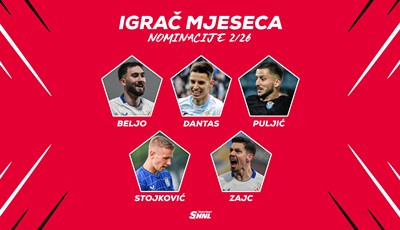
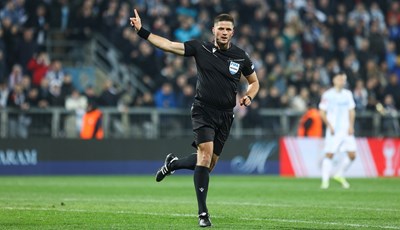
Raci srušio Adu-Adjeija, Riječani tražili isključenje, Kolarić izvukao žuti karton
2 sata•SuperSport Hrvatski kup
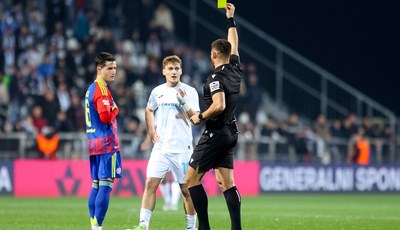
Kolarić već u četvrtoj minuti pokazao na 11 metara za Rijeku, VAR provjera ga razuvjerila
3 sata•SuperSport Hrvatski kup
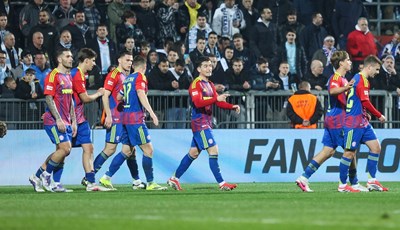
Pogodak Brajkovića u sudačkoj nadoknadi desetak minuta držao Hajduk u polufinalu SuperSport HNK
3 sata•SuperSport Hrvatski kup
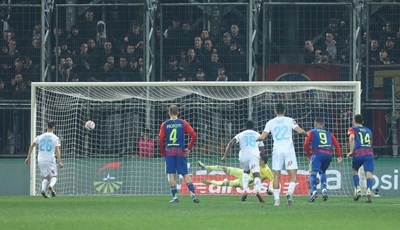
Prvi kazneni udarac koji je vratio Riječane iz minusa u ranoj fazi drugog poluvremena
4 sata•SuperSport Hrvatski kup
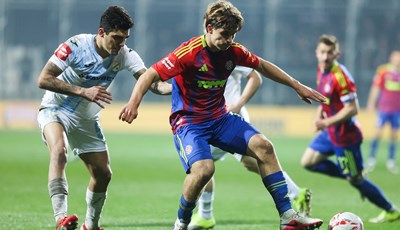
Hajduk je prvi stigao do pogotka i to nakon krasne akcije i odlične realizacije
4 sata•SuperSport Hrvatski kup
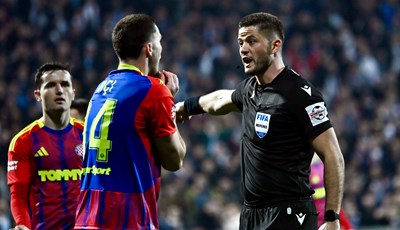
Rebić: 'Kolarić mi govori da mi je trebao dati tri crvena kartona. Pitao sam ga zašto nije'
4 sata•SuperSport Hrvatski kup
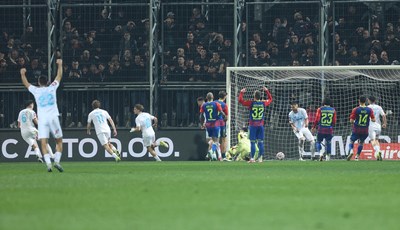
Rijeka u jednoj od najnevjerojatnijih utakmica u hrvatskoj povijesti preko Hajduka prošla u polufinale SuperSport HNK-a!
6 sati•SuperSport Hrvatski kup

SuperSport HNL nominacije: Dinamovci dominiraju za mjesečne nagrade
2 dana•SuperSport HNL

Rijeka u jednoj od najnevjerojatnijih utakmica u hrvatskoj povijesti preko Hajduka prošla u polufinale SuperSport HNK-a!
6 sati•SuperSport Hrvatski kup
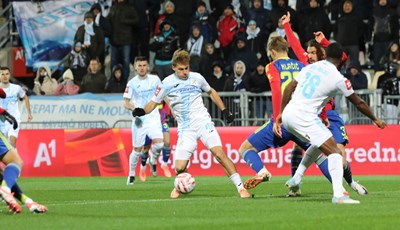
Kronologija: Nevjerojatna utakmica na Rujevici, Rijeka okrenula na kraju sudačke nadoknade!
8 sati•SuperSport Hrvatski kup
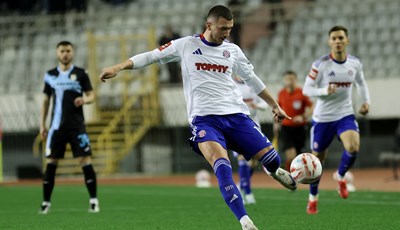
Izbjegnuta nova afera: Dario Marešić ipak maknut iz početne postave Hajduka na Rujevici
8 sati•SuperSport Hrvatski kup
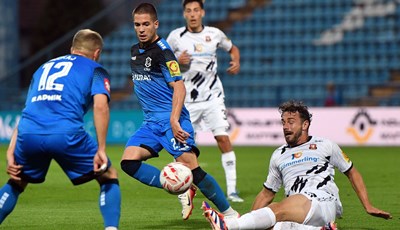
Kronologija: Goričani prvi izborili polufinale SuperSport Hrvatskog kupa!
11 sati•SuperSport Hrvatski kup

Rebić: 'Kolarić mi govori da mi je trebao dati tri crvena kartona. Pitao sam ga zašto nije'
4 sata•SuperSport Hrvatski kup
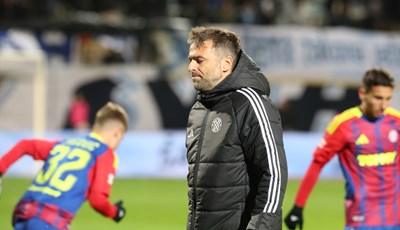
Garcia: 'Suci vam sve objašnjavaju pa rade što hoće'
5 sati•SuperSport Hrvatski kup
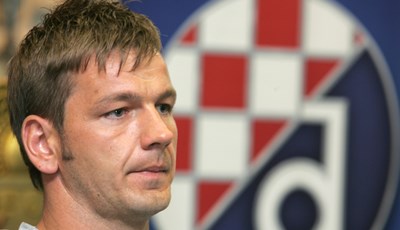
Preminuo jedan od omiljenih nekadašnjih vratara Dinama Georg Koch
10 sati•SuperSport HNL








